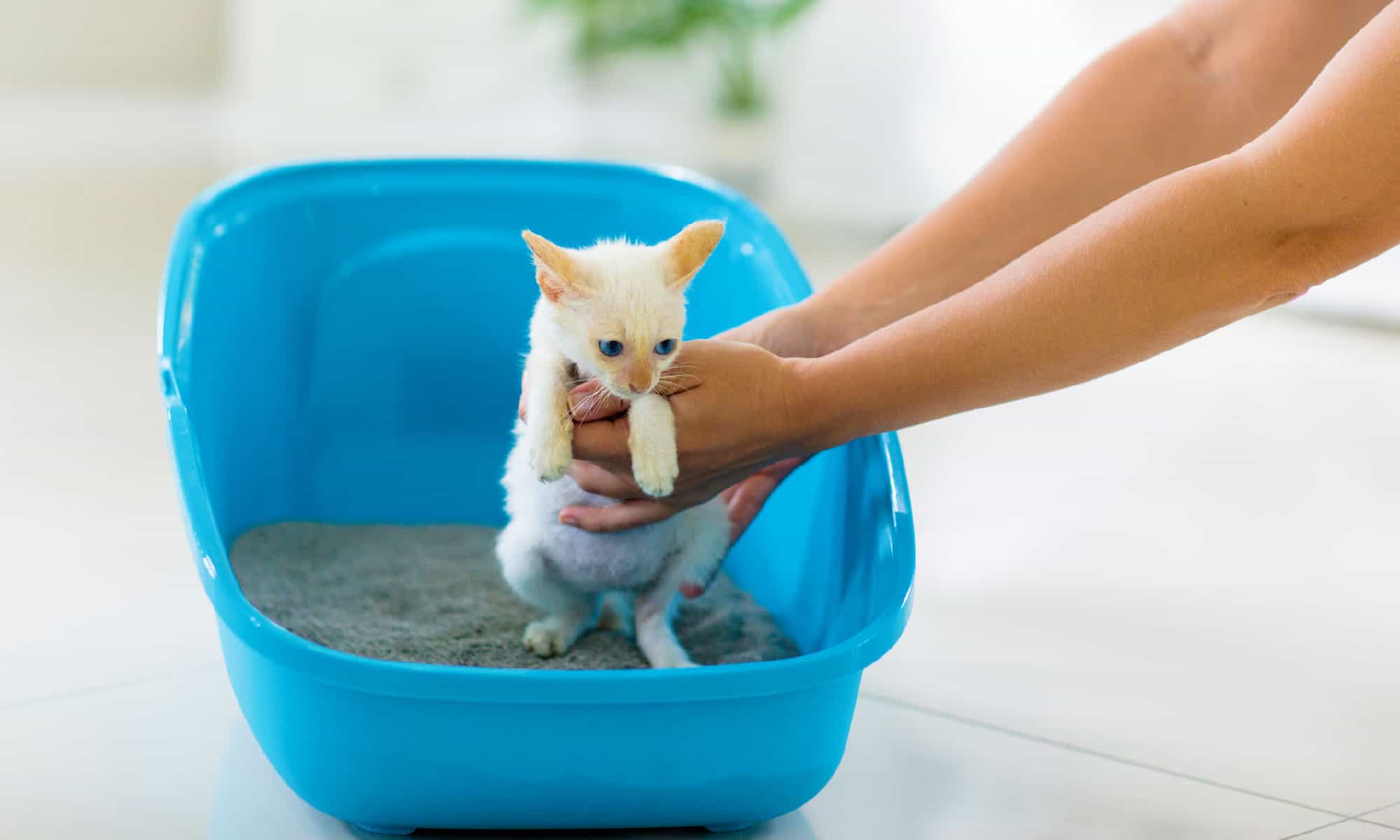If you recently adopted a kitten, you likely are filled with excitement and possibly even some nerves. You want what’s best for your new furry friend, but it’s impossible to become an expert in kitten behavior overnight. Many cat owners have various questions regarding a young cat’s feeding, defecating, and urinating habits.
Urination is an important process for kittens, especially young ones who tend to go more frequently. Urinating helps rid the body of toxins and allows the rest of the body to function appropriately.
If you’re wondering how often a kitten should be urinating, keep reading to understand the normal amount of times so you can stay on top of your new pet’s health.
How Often Do Kittens Pee?
A healthy kitten over four months old will typically urinate four times per day. If your kitten is younger than four months, it should urinate around six times per day.
It’s important to keep an eye on your kitten’s urination habits to determine its health. This is why experts recommend cleaning your cat’s litter box at least twice a day to check the color of the urine. Typically, it should be clear or pale yellow; if you notice dark yellow, orange, brown, red, or other discolored urination, take your kitty to the vet to ensure its organs are working properly. Often, if a kitten is dehydrated or has kidney issues, its urine can be darker.
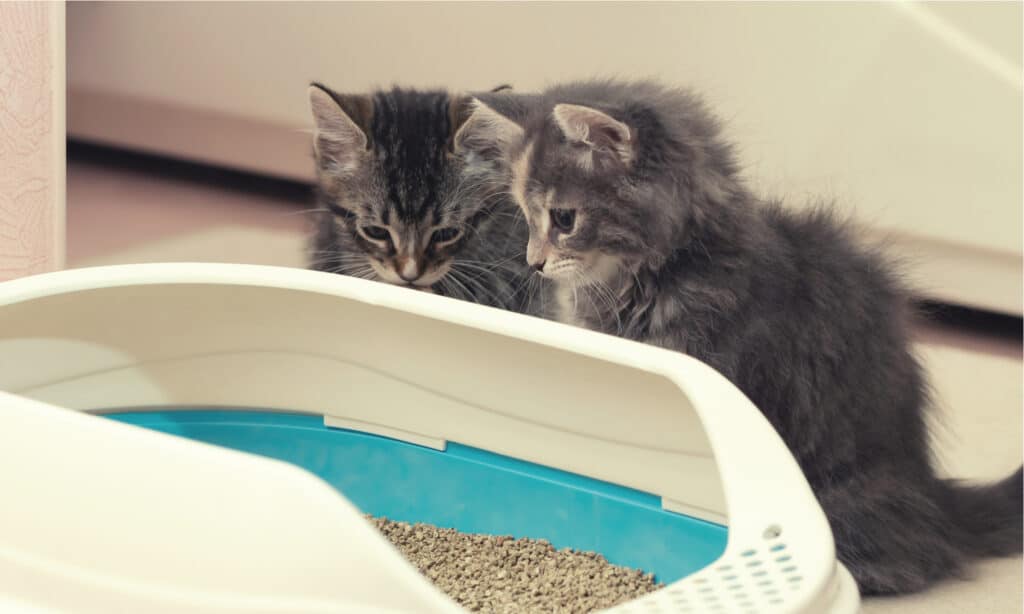
It typically takes kittens three weeks to adjust to using a litter box.
©galsand/Shutterstock.com
Kitten Urination Habits Based on Age
Depending on the age of your kitten, its urination frequency will likely differ. Here’s a breakdown of urination habits based on age per month.
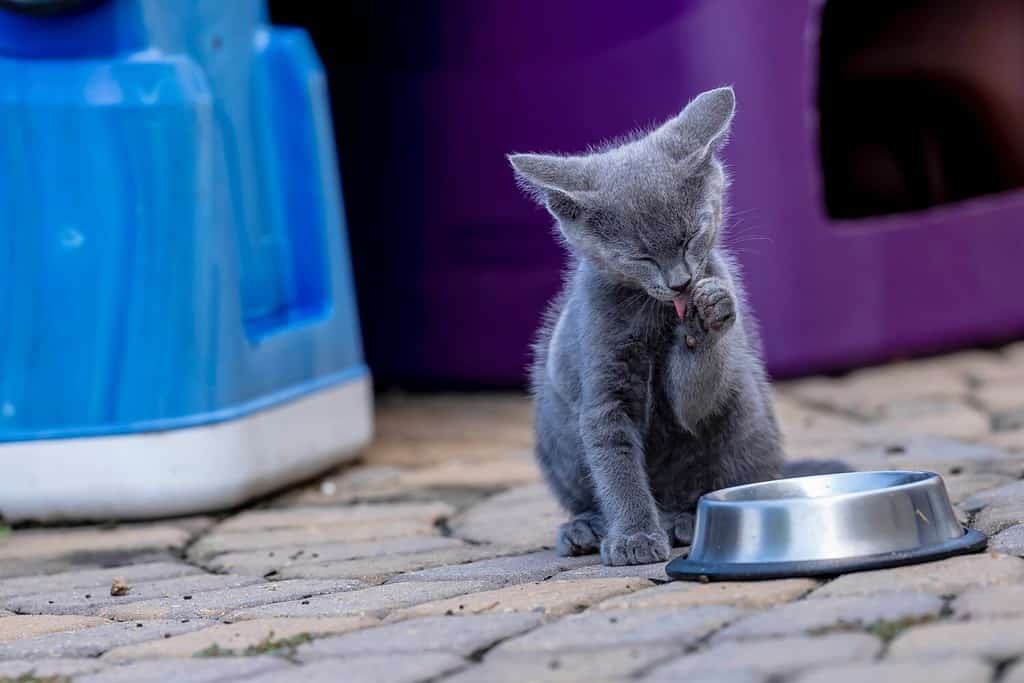
Once a kitten has reached the eight-week mark, their mother teaches them how to groom themselves and a bit of solid food.
©Grindstone Media Group/Shutterstock.com
Under Two Months Old
A kitten at or under two months of age should urinate after every feeding. They might urinate between up to 12 times per day, with more frequency in the early weeks.
Two to Four Months Old
Kittens between two to four months will typically urinate between four to six times per day, with more frequent urination during earlier months.
Six Months+
Once your kitten reaches about six months, it will likely urinate between two to three times per day. This is the average urination of an adult cat as well.
Frequent Urination: Why Is My Kitten Peeing a Lot?
Frequent urination can indicate various health issues in kittens. Here are a few reasons why your kitten might be peeing too much.
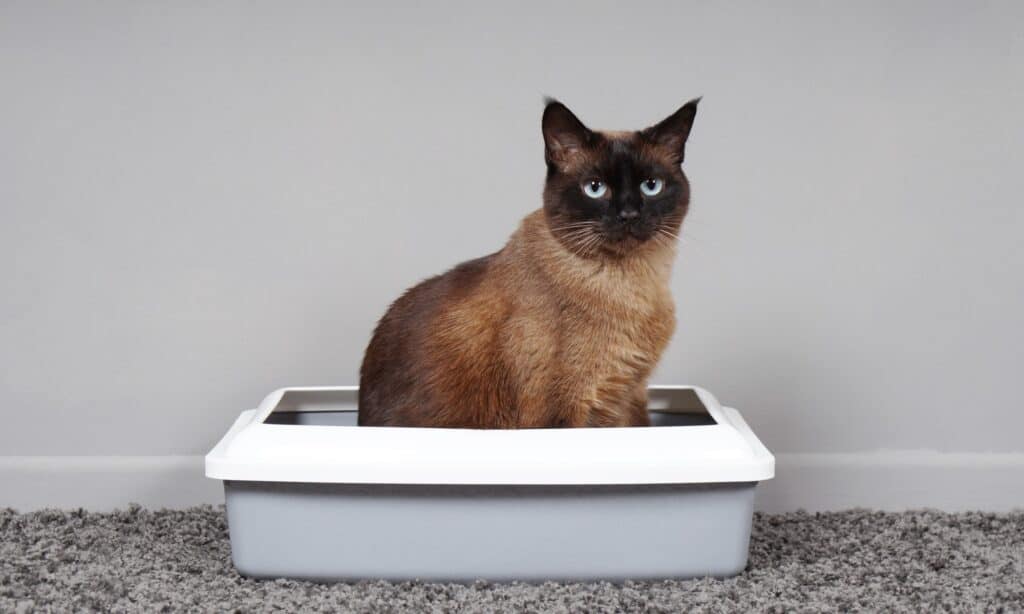
Too many trips to the litter box might indicate an underlying health issue.
©iStock.com/Axel Bueckert
Urinary Tract or Bladder Infection
Often, a urinary tract infection (UTI) or bladder infection will cause a kitten to urinate more or feel the urgency to urinate more frequently. Keep in mind, however. Your kitten might not actually be peeing when it goes into its litter box. Rather, it could feel the sensation of needing to pee without being able to do so. Another sign of a UTI or bladder infection is dark-colored, foul-smelling urine or even blood in the urine.
Kidney Infection or Disease
Showing similar signs as those listed above, kidney infections and other issues, including kidney stones or even kidney failure, can cause frequent urination or, on the contrary, trouble urinating. Your kitten might make frequent trips to the litter box without fully emptying its bladder. Keep an eye on how often it attempts to pee and whether it’s displaying other symptoms of kidney disease, such as body odor, refusal to eat, and fatigue.
Diabetes
Increased urination is a common symptom in cats with diabetes. This is because the kidneys will produce more urine to pass high levels of glucose out of the body. You might notice your kitten also drinking more frequently, as increased thirst occurs as a result of lost fluids. In other words, your kitten is trying to rehydrate itself.
Feline Lower Urinary Tract Disease (FLUTD)
Though more common in adult cats, feline lower urinary tract disease (FLUTD) is an umbrella term for various bladder and urethra conditions in cats. The most common signs of FLUTD are pain when urinating, frequent urination, and blood in the urine. Additionally, many cats will pee outside of their litter box, such as on cold, hard surfaces.
Urinary Tract Obstructions
Sometimes, kittens can develop painful kidney, bladder, or urethra stones. To help pass the stone, they might try to urinate more often. However, they often struggle to get the urine out, as the obstructions can block the flow.
Anxiety or Extreme Stress
Believe it or not, a kitten’s emotional distress can interfere with their urinating habits. The more anxious a kitten is, the more likely it will be to pee frequently. This is because stress hormones can interfere with kidney functions like concentrating and conserving urine. As a result, the kitten will pee more dilute urine.
Extreme stress is common in recently adopted kittens, as they might struggle to adjust to their new environments. If your kitten shows other signs of anxiety, like shaking, dilated pupils, lack of appetite, aggression, and restlessness, it might suffer from anxiety.
Urinary Retention: Why Is My Kitten Not Peeing?
Urinary retention can be dangerous if left untreated. Here are a few reasons why your kitten isn’t peeing as much as it should be.
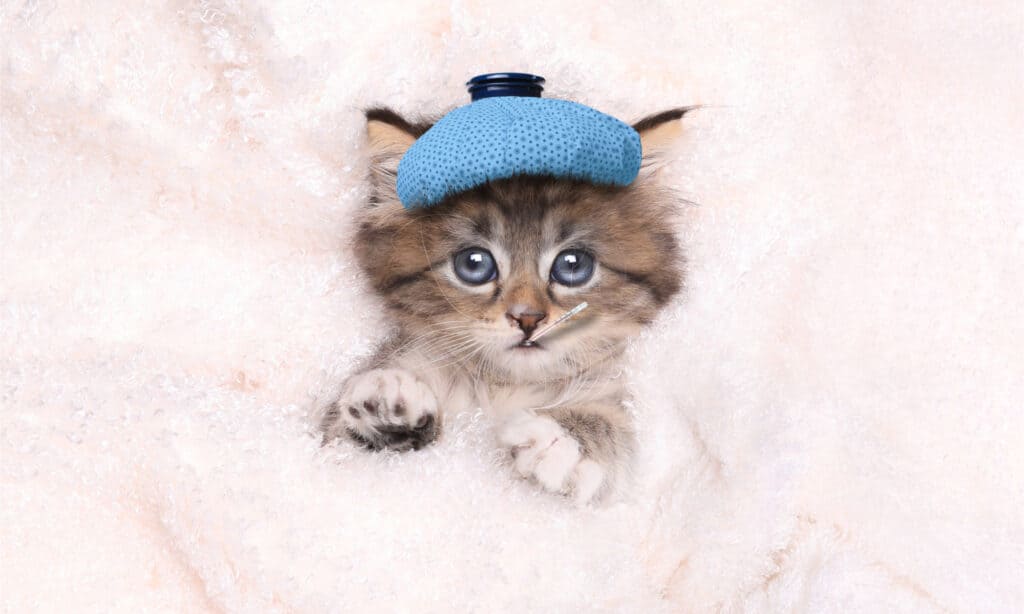
Cats can get infections and sicknesses just like humans, which can impact their urination habits.
©Katrina Brown/Shutterstock.com
Urinary Tract or Bladder Infection
As mentioned earlier, UTIs in kittens can lead to urinary retention. Though your kitten might appear to be peeing more often, if nothing is coming out or it’s struggling to pass urine, it might be suffering from an infection.
Dehydration
If your kitten hasn’t been drinking enough water, it can get dehydrated, just like humans. When dehydrated, the kitten’s kidneys will retain water. If your kitten’s urine is concentrated when it does pee, this is another sign it’s not getting enough fluids.
Shock
Sometimes, kittens can go into shock from serious situations like allergic reactions, heat stroke, and trauma. Shock occurs when not enough blood and nutrients are cycling throughout the body. If your cat is in shock, it might not be able to urinate. However, you will likely notice other more distressing symptoms such as rapid breathing, pale gums, cool extremities, and vomiting.
Urinary Blockage
Another common issue associated with both frequent urination and urinary retention is a urinary blockage like kidney stones. If your kitten is also crying or appears to be in pain when trying to urinate, it might be struggling to pass a stone.
What to do When Your Kitten Is Urinating Too Frequently or Not Frequently Enough
If your kitten is peeing more or less frequently than the average amount for its age, take it to the vet immediately to get the right diagnosis. Some serious illnesses in kittens can cause both frequent urination and urinary retention. Report all other symptoms to the vet as well, as the accompanying symptoms can help your vet understand what to test for.
Infectious diseases like UTIs or kidney infections typically require antibiotics to help clear them up. Other diseases mentioned above are usually treatable as well, depending on the severity or progression of the illness.
As always, if your kitten is suffering from any of the above symptoms, try not to panic — there are many reasons your kitten’s urination habits are out of whack. When in doubt, it’s best to get a professional opinion so your kitten can make a full recovery.
Thank you for reading! Have some feedback for us? Contact the AZ Animals editorial team.

